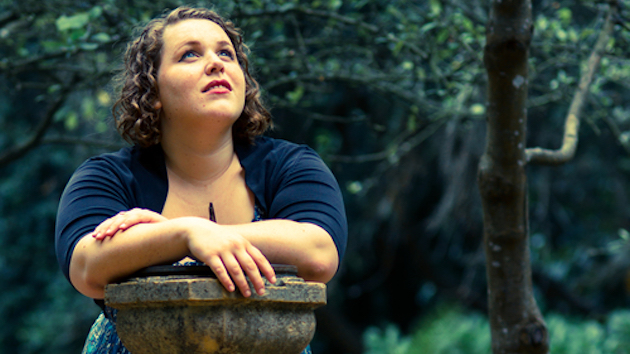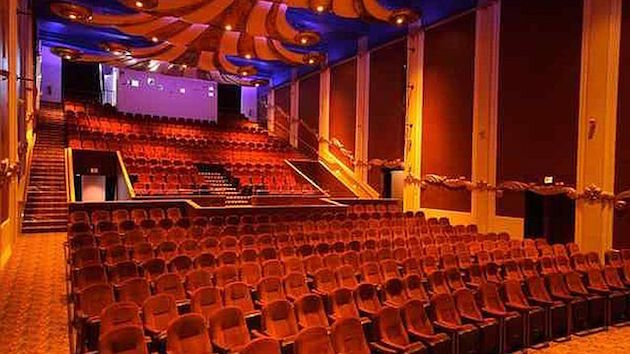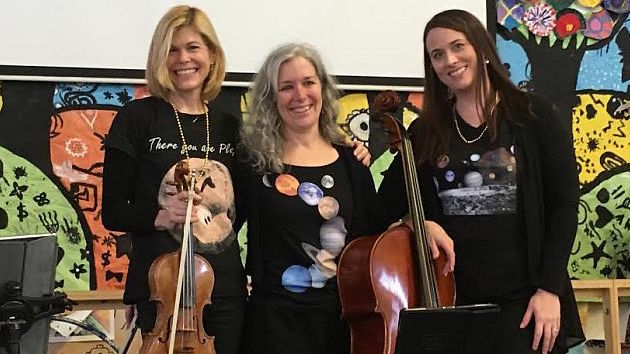
Houston Grand Opera Is Among Hurricane Harvey’s Victims
Among the unprecedented devastation in Texas caused by the Category 4 Hurricane Harvey and subsequent floods from constant heavy rain as a tropical storm remaining from Harvey stalls over millions of residents: Houston’s Wortham Theater Center, home to Houston Grand Opera and Houston Ballet.
The opera company was hit so hard it can’t even communicate directly online about the damage as power outages, combined with generators being shut off in the flooded basement, crippled the HGO website.

In a statement Monday afternoon, HGO Managing Director Perryn Leech and Artistic and Music Director Patrick Summers said the company, the city, and the region continue to be impacted by the storm’s aftermath:
The Wortham had water penetration into the front of house areas at a low level due to high water; that water has now receded and left residual dirt. In the back of house, water surged over the storm defense and some water went onto the Brown Theater stage. This was at a low level but has resulted in damage to the surface of the stage.
The Cullen Theater stage has little water damage and the dressing room corridor had water, but also at a low level. The basement of the building is completely full of flood water. The Theater District garage is completely flooded and will undoubtedly be closed for some time for repairs and cleanup.
The Alley Theater, the Houston Grand Opera, and other gems of Houston’s vaunted arts district have been swamped by floods from the nearby Buffalo Bayou and face significant repairs, threatening this fall’s performance season which was to begin next week.
The season is scheduled to open on Oct. 20 with Verdi’s La traviata, soprano Albina Shagimuratova in the title role. It will be followed by Handel’s Julius Caesar, The House Without a Christmas Tree by Ricky Ian Gordon and Royce Vavrek, Richard Strauss’s Elektra, in 2018, with Christine Goerke, Rossini’s The Barber of Seville, an operatic version of Bernstein’s West Side Story, and Bellini’s Norma (with Liudmyla Monastyrska and Jamie Barton).

Phonochrome: Where New Music Meets the Fight Against Censorship
The chamber ensemble Phonochrome is getting ready for a Banned Books Week Solidarity concert on Sept. 24 in the Center for New Music. Elizabeth Talbert, a flutist and director of Phonochrome, promises “a timely and compelling array of music that relates to the censorship of art and artists throughout various time periods and political cultures.”

Talbert and soprano Anne Hepburn Smith, mezzo Melinda Becker, clarinetist Sophie Huet, cellist Natalie Raney, and pianist Anne Rainwater will perform works by blacklisted artists Dorothy Parker and Aaron Copland; songs by radio-silenced singers Billie Holiday, Nina Simone, and author Maya Angelou; and music inspired by banned music such as Alice in Wonderland and Pierre Louÿs’s Chansons de Bilitis.
Raney will open the concert with the Catalonian folk song, “Song of the Birds,” made famous by Pablo Casals during his self-imposed political exile from Spain.
Selections from Dorothy Parker’s Songs of Perfect Propriety and Maya Angelou’s Calypso Songs serve as reminders that Parker was investigated by the FBI and placed on the Hollywood Blacklist for her participation in pre-WWII antifascist organizations, and Maya Angelou’s autobiography remains one of the most contested books in American literary history.
Concluding the performance will be a contemporary arrangement of “Strange Fruit,” a song written by Jewish poet Abel Meerepol to protest lynchings, which later became an anthem for the American Civil Rights movement. The noontime concert is preceded by a Ritual Coffee Roasters coffee reception beginning at 11:30, and followed by a book reception with The Green Arcade bookstore.
Events of the Banned Books Week aim to raise awareness of the political oppression of artists, journalists, and musicians, as well as highlight the importance of First Amendment rights and the ongoing work of organizations such as the American Library Association and the Freedom to Read Foundation.

Vallejo Symphony’s Royal Transfer to the Empress
Turning 86, Vallejo Symphony is vigorously alive and kicking. Music Director Marc Taddei and Board President Mary Eichbauer have announced the new season, Taddei’s second, with three Sunday subscription concerts slated for the 470-seat Empress Theater, each featuring pianist Cecile Licad. Additional performances and activities in Vallejo and Benicia schools include a series of miniconcerts by a trio of professional musicians who are also experienced educators.
Finding a home for the season was a challenge for the orchestra. In the past, it played in the Empress just once per year. Later it used the larger Hogan Auditorium, which provided 900 seats and was not lacking audience comfort. The century-old Empress had a major renovation in 2008, with continued upgrades, and now it will serve the orchestra as its home.

Program I, on Oct. 15, features Tchaikovsky’s rarely performed The Tempest, Symphonic Fantasia after Shakespeare, Op. 18, Licad as soloist in the Chopin Piano Concerto No. 1, and concludes with Mozart’s Symphony No. 39.
Mozart’s Symphony No. 40 opens the second concert, on Jan. 28, 2018. Licad plays Shostakovich’s Piano Concerto No. 1, followed by Tchaikovsky’s Romeo and Juliet Fantasy Overture.
Program III features another Tchaikovsky rarity, the Hamlet tone poem, along with Saint-Saëns’s Piano Concerto No. 2, and Mozart’s Symphony No. 41 (“Jupiter”).
Preconcert talks are presented one hour before each orchestra performance and feature conversations between Taddei and guest artists. The conductor also offers a series of videos called “A Minute with Marc” through the orchestra’s newsletter, website, and Facebook page.
Season subscriptions are still available, but loge and lower balcony sections are already sold out. Season tickets are still available for the orchestra section, at $132; and the upper balcony, at $84. Single tickets are $35 to $95 per concert, from (707) 643-4441, VallejoSymphony@gmail.com, or the orchestra website.
Vallejo’s KZCT 89.5 FM will be rebroadcast all concerts at 10:30 a.m. on Nov. 11, Feb. 10, and March 24, respectively. Vallejo Symphony also contributes concert recordings to KDFC-FM San Francisco for its Bay Area Mix program and website.

